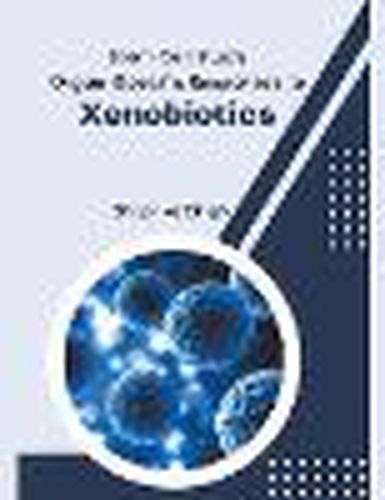Readings Newsletter
Become a Readings Member to make your shopping experience even easier.
Sign in or sign up for free!
You’re not far away from qualifying for FREE standard shipping within Australia
You’ve qualified for FREE standard shipping within Australia
The cart is loading…






This title is printed to order. This book may have been self-published. If so, we cannot guarantee the quality of the content. In the main most books will have gone through the editing process however some may not. We therefore suggest that you be aware of this before ordering this book. If in doubt check either the author or publisher’s details as we are unable to accept any returns unless they are faulty. Please contact us if you have any questions.
In "Stem Cell Study: Organ-Specific Responses to Xenobiotics," Shripriya Singh explores the exciting field of stem cell research and its applications in detecting organ-specific responses to xenobiotics. This book provides a comprehensive overview of the use of stem cells for toxicology studies and their potential for identifying organ-specific responses to xenobiotics.
The book begins with an introduction to stem cells and their properties, followed by a discussion of the various types of xenobiotics and their effects on human health. Singh then delves into the techniques used for stem cell culture and differentiation, including 3D cell culture and microfluidic platforms.
The book then moves on to the applications of stem cells in toxicology studies, focusing on the detection of organ-specific responses to xenobiotics. Singh discusses the use of various types of stem cells, such as induced pluripotent stem cells (iPSCs) and organoids, for toxicology studies. The author also presents case studies on the use of stem cells for detecting organ-specific responses to xenobiotics, such as the liver and the kidney.
Overall, "Stem Cell Study: Organ-Specific Responses to Xenobiotics" is an informative and insightful book for researchers, scientists, and clinicians working in the field of toxicology and stem cell research. The author provides a comprehensive understanding of the potential of stem cells for detecting organ-specific responses to xenobiotics, which is crucial for improving drug development and human health.
$9.00 standard shipping within Australia
FREE standard shipping within Australia for orders over $100.00
Express & International shipping calculated at checkout
This title is printed to order. This book may have been self-published. If so, we cannot guarantee the quality of the content. In the main most books will have gone through the editing process however some may not. We therefore suggest that you be aware of this before ordering this book. If in doubt check either the author or publisher’s details as we are unable to accept any returns unless they are faulty. Please contact us if you have any questions.
In "Stem Cell Study: Organ-Specific Responses to Xenobiotics," Shripriya Singh explores the exciting field of stem cell research and its applications in detecting organ-specific responses to xenobiotics. This book provides a comprehensive overview of the use of stem cells for toxicology studies and their potential for identifying organ-specific responses to xenobiotics.
The book begins with an introduction to stem cells and their properties, followed by a discussion of the various types of xenobiotics and their effects on human health. Singh then delves into the techniques used for stem cell culture and differentiation, including 3D cell culture and microfluidic platforms.
The book then moves on to the applications of stem cells in toxicology studies, focusing on the detection of organ-specific responses to xenobiotics. Singh discusses the use of various types of stem cells, such as induced pluripotent stem cells (iPSCs) and organoids, for toxicology studies. The author also presents case studies on the use of stem cells for detecting organ-specific responses to xenobiotics, such as the liver and the kidney.
Overall, "Stem Cell Study: Organ-Specific Responses to Xenobiotics" is an informative and insightful book for researchers, scientists, and clinicians working in the field of toxicology and stem cell research. The author provides a comprehensive understanding of the potential of stem cells for detecting organ-specific responses to xenobiotics, which is crucial for improving drug development and human health.